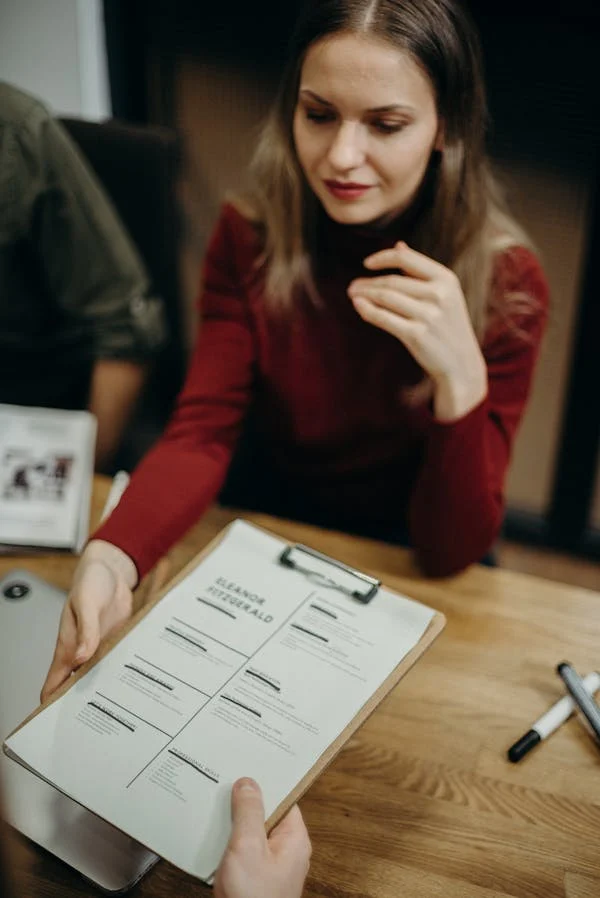How to Discuss Your Weaknesses in a Job Interview
When preparing for a job interview, it can be daunting to think about discussing your weaknesses, especially when you're eager to highlight your strengths and qualifications. However, addressing your weaknesses thoughtfully can demonstrate self-awareness, maturity, and a commitment to personal growth. In this guide, we explore ten common weaknesses and provide example answers to help you turn this challenging question into an opportunity to stand out.
1. Focusing Too Much on Details
Example Answer: "My greatest weakness is that I sometimes focus too much on the details of a project and spend too much time analyzing the finer points. I've been striving to improve in this area by checking in with myself at regular intervals and giving myself a chance to refocus on the bigger picture. This way, I can still ensure quality without letting the details affect my productivity or the team's ability to meet deadlines."
2. Difficulty Letting Go of Projects
Example Answer: "My greatest weakness is that I sometimes have a hard time letting go of a project. I'm my own biggest critic and always find something that needs to be improved or changed. To help myself improve in this area, I give myself deadlines for revisions, ensuring I'm not making changes at the last minute."
3. Trouble Saying "No"
Example Answer: "My greatest weakness is that I sometimes have trouble saying 'no' to requests and end up taking on more than I can handle. In the past, this has led to stress and burnout. To improve, I use a project management app to visualize my workload and assess whether I have the bandwidth to take on additional tasks."
4. Impatience with Missed Deadlines
Example Answer: "My greatest weakness is that I get impatient when projects run past their deadlines. I'm a stickler for due dates and get uncomfortable when work isn't completed on time. To avoid this, I've started being more proactive in my planning and ensuring I react constructively to delays, helping to foster efficiency."
5. Needing More Experience in Certain Areas
Example Answer: "I've realized that I could use more experience in verbal communication. While I'm comfortable with written communication, presenting ideas in meetings has been a challenge. To improve, I've been practicing public speaking and seeking opportunities to present to my team."
6. Lack of Confidence
Example Answer: "In the past, I've struggled with confidence, which sometimes prevented me from voicing my ideas. To overcome this, I've kept a running document of my contributions and their impacts. This has helped me understand the value I bring to the team and encouraged me to share my ideas more frequently, leading to positive outcomes."
7. Difficulty Asking for Help
Example Answer: "Because I am independent and enjoy working quickly, it has been difficult for me to ask for help when I need it. I've learned that reaching out when I don't understand something or feel overwhelmed can lead to better outcomes. By seeking assistance from colleagues, I've been able to produce higher quality work."
8. Challenges Working with Certain Personalities
Example Answer: "I've found it difficult to work with aggressive personality types in the past. To improve, I've spent more time understanding their communication styles and motivations. This has helped me collaborate more effectively, ensuring that we both contribute our strengths to the team's success."
9. Struggling with Work-Life Balance
Example Answer: "Because I truly love my work and have ambitious career goals, maintaining a work-life balance has been challenging. Ignoring my personal needs negatively impacted my motivation and focus. I've made a point to create space in my schedule for family and hobbies, which has improved my overall productivity and enthusiasm for work."
10. Uncomfortable with Ambiguity
Example Answer: "In my last position, I became accustomed to detailed instructions, which made ambiguous tasks challenging. To improve, I've developed a framework for approaching ambiguous tasks, including structured research and consulting with subject matter experts. This has helped me thrive in situations requiring self-direction and creativity."
Tips for Discussing Your Weaknesses
- Be Honest: Identify a genuine weakness and be truthful about it.
- Show Insight: Explain the steps you are taking to improve.
- Stay Relevant: Choose a weakness that is not critical to the job you are applying for.
By presenting a weakness and discussing how you are addressing it, you can turn this question into an opportunity to demonstrate your problem-solving skills and commitment to personal development.



Comments
Post a Comment